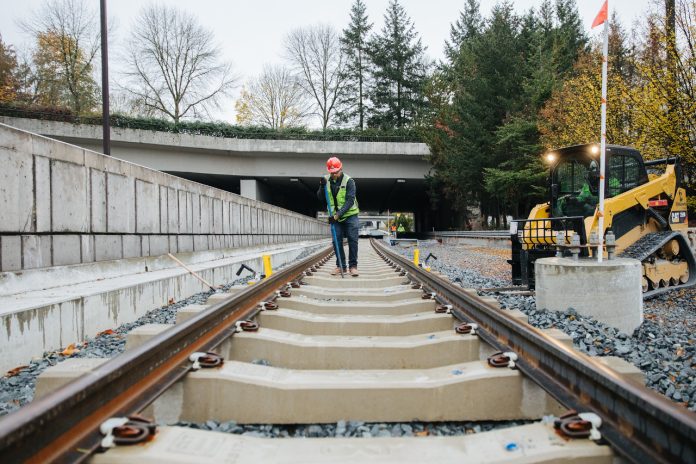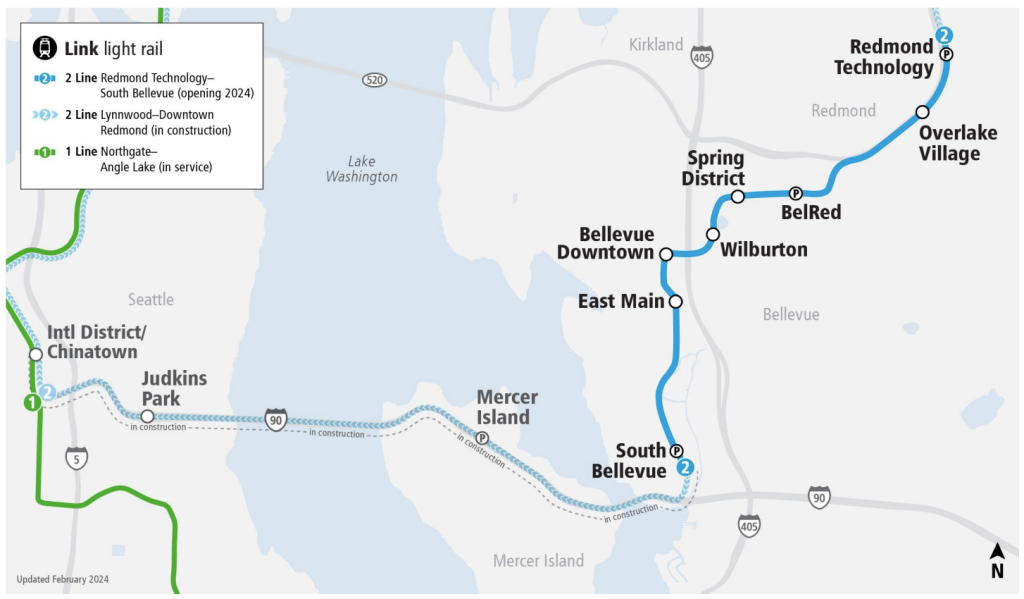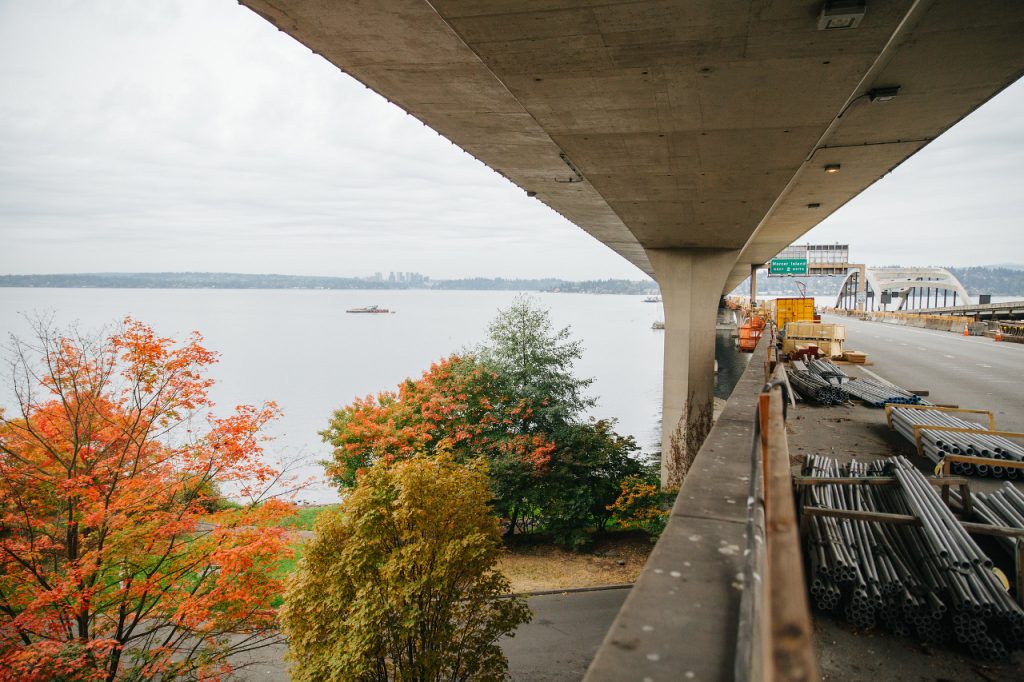
In order for Sound Transit to meet its highly-publicized pledge to open the full East Link light rail extension between Seattle and Redmond sometime in 2025, everything needs to go right from this moment forward. That was the update given to the Sound Transit board’s system expansion committee on Thursday, just days after the agency began passenger service on an abbreviated segment of the line between Redmond and South Bellevue on April 27.
The current estimated start date for service for the full 2 Line between Lynnwood City Center and Redmond Technology stations across the I-90 floating bridge is currently late November of 2025. Sound Transit has lost one month since the last project timeline update, with no “float” — additional time baked in for contingency — remaining whatsoever. Any additional delays to construction will likely punt that date into 2026, a symbolic setback that puts an opening precariously close to Seattle’s tenure as host of the 2026 FIFA World Cup events.
“We don’t have a day to waste,” Ron Lewis, the agency’s executive director of design, engineering, and construction management, told the committee. “And this summer is critical.”

Sound Transit’s contractors are now 80% complete with reconstructing the “plinths” that hold up tracks along the I-90 segments of East Link, the ones that were found to be defective in 2022. But the projected date for contractors to complete that work has already slipped from this July to August. Next month, Sound Transit will close the Downtown Seattle transit tunnel for a weekend so that crews can work to tie in 2 Line tracks with current 1 Line tracks at International District/Chinatown Station, work that will have sequels this fall.
On Thursday, the committee gave approval to an entire slate of motions allocating additional funding — already included in the overall East Link budget — to fund contractors who are helping the agency get to the finish line. Following the approval of the full board, out of the entire $3.7 billion project cost, just $93.9 million will remain uncommitted for the project, with all of that almost certain to be allocated by next year.

“We do need a strong collaboration and a commitment from our contractors to meet the remaining schedule because we do not have float remaining,” deputy executive Tracy Reed told the committee. “But we have made progress this spring, and are still on track to meet the fourth quarter delivery [in 2025]. Maintaining schedule is of the utmost importance, and if we do find opportunities to save and use any time that will benefit us collectively.”
Left for another day is the issue of whether Sound Transit will be able to recoup any costs stemming from the shoddy construction.
“There are a lot of questions,” system expansion committee chair Claudia Balducci said Thursday. “Constituents, press, people have questions, very understandable questions, about where’s the accountability going to be for the problems on this project, and who’s going to pay for the problems, and I just want to state for the record: my expectation is that the taxpayers will not bear the burden of rework due to poor workmanship — that should be on the folks who did the poor workmanship.”

Sound Transit’s contract with the firms responsible for the initial work on the I-90 bridge calls for a mediation process to resolve disputes like the one the agency finds itself in now, with those talks currently scheduled to begin this fall.
On the other end of the 2 Line, the extension to Marymoor Village and Downtown Redmond is currently on track to open next spring, with construction 88% complete. But there are some risks to that project’s schedule as well, including the fact that Lynnwood Link (opening August 30 of this year) is set to receive priority for technical support, potentially delaying the start of testing on the Downtown Redmond extension and pushing the start date if both projects need attention.
With all eyes around the region on the I-90 connection, the pressure is on for Sound Transit to meet its commitment to a 2025 opening. But ultimately what matters now is making sure this critical connection is done right, and the number of things that could pop up that cause the agency to have to push the opening into 2026 is a long list. The excitement that will come when riders can finally cross the floating bridge won’t be diminished, no matter when the day finally arrives.
Ryan Packer has been writing for The Urbanist since 2015, and currently reports full-time as Contributing Editor. Their beats are transportation, land use, public space, traffic safety, and obscure community meetings. Packer has also reported for other regional outlets including Capitol Hill Seattle, BikePortland, Seattle Met, and PubliCola. They live in the Capitol Hill neighborhood of Seattle.


